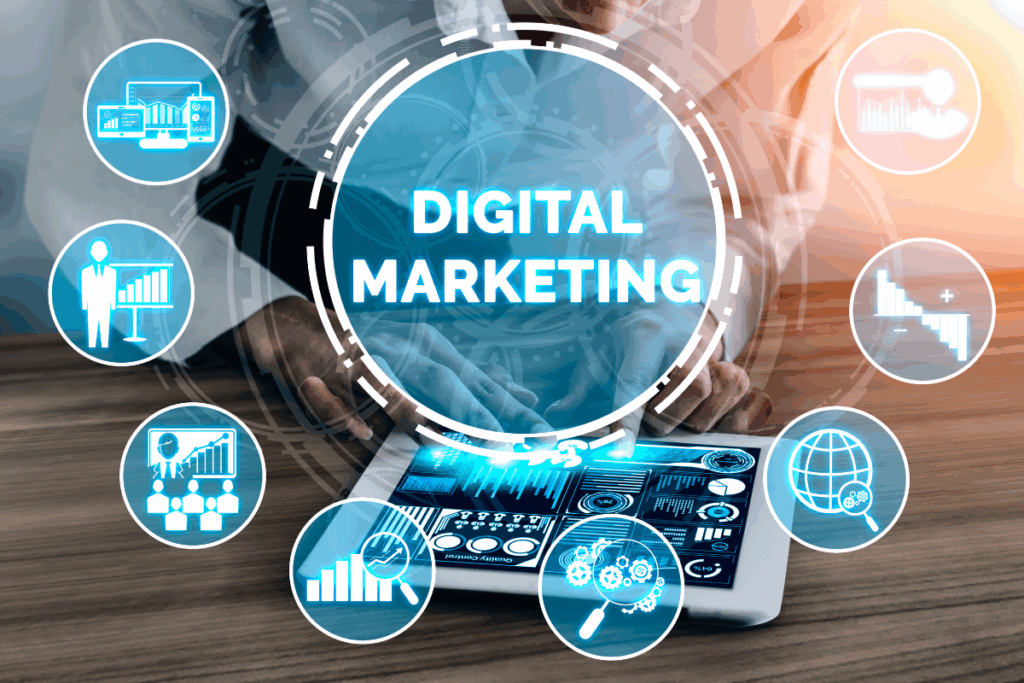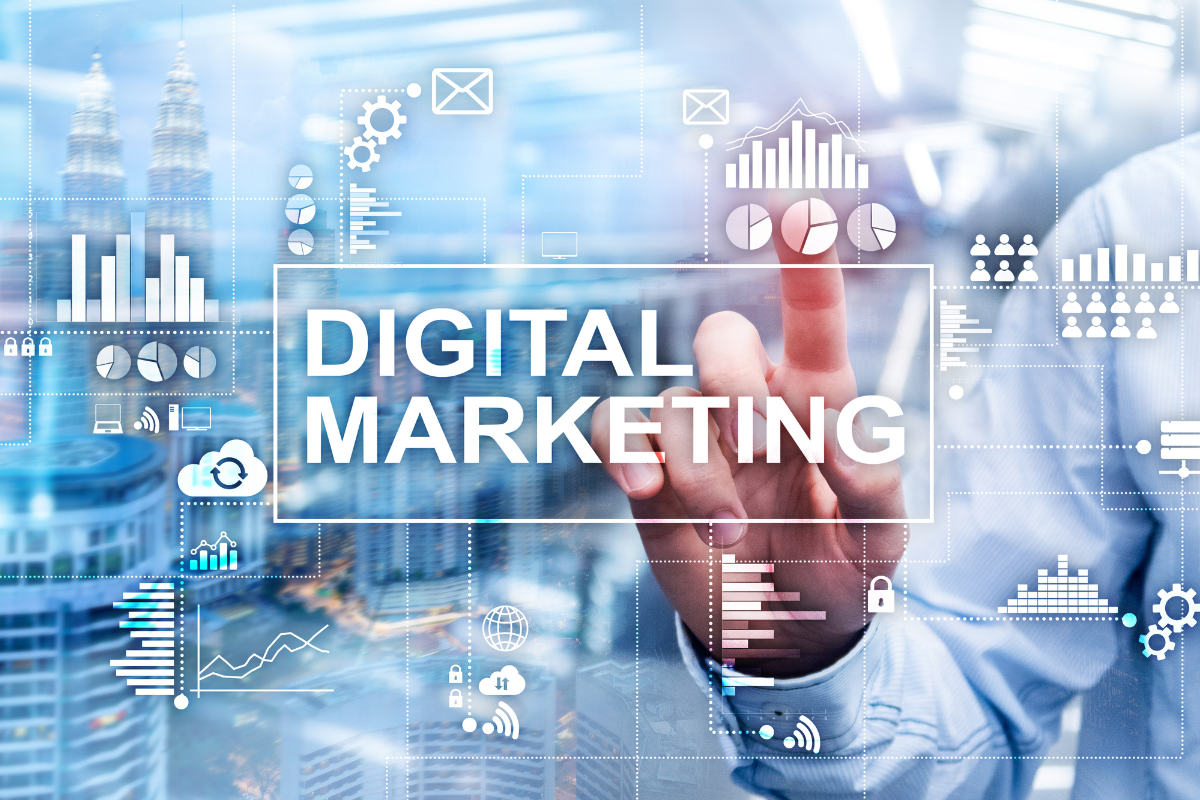In 2025, over 80% of business and tech leaders say they are actively using some form of Artificial Intelligence (AI) in their marketing strategies.¹ This isn’t just a trend—it’s a transformational shift that’s redefining how brands connect with consumers. In Singapore, where digital innovation is strongly backed by government initiatives like AI Singapore, businesses are well-positioned to leverage AI for marketing success.
But what exactly is AI in the context of digital marketing? It’s not about replacing humans with robots. Instead, AI augments human intelligence—analysing data at scale, uncovering insights, predicting behaviours, and even creating content. It empowers marketers to work smarter, faster, and more effectively.
Every modern marketer must pay attention. Whether you’re a digital strategist in a creative agency or a business owner running targeted Facebook campaigns, AI offers tools and techniques that can take your marketing to the next level.
This guide will explore everything from AI fundamentals and real-world applications to implementation strategies and emerging trends—all with a practical lens for Singapore’s fast-paced digital landscape.
Demystifying AI: Core Concepts for Marketers
At its core, Artificial Intelligence refers to systems or machines that mimic human intelligence to perform tasks and can improve themselves based on the information they collect. But marketers don’t need to be data scientists. What matters most is understanding how different types of AI can be applied to your campaigns.
Key AI Technologies in Marketing
- Machine Learning (ML): This involves teaching machines to recognise patterns in data and make predictions. In marketing, it powers everything from email automation to churn prediction.
- Natural Language Processing (NLP): Think of chatbots, voice search, or AI writing tools. NLP allows computers to understand and generate human language, improving customer service and content output.
- Deep Learning: A more advanced subset of ML that enables systems to analyse complex media like images and videos—used in facial recognition or visual product recommendations.
- Generative AI: This technology creates new content—text, images, even videos. Tools like ChatGPT, Midjourney, and Jasper AI fall under this umbrella, helping marketers ideate and produce faster.
These technologies aren’t standalone—they work together to power intelligent marketing tools that provide smarter insights and experiences.
The Transformative Power: How AI is Reshaping Digital Marketing
1. Personalisation and Customer Experience
AI enables hyper-personalisation at scale. Netflix and Spotify lead the way with content suggestions based on viewing/listening behaviour. Singapore brands are following suit, tailoring promotions and recommendations based on user data.
- Chatbots powered by AI (like those used by DBS and Singtel) offer 24/7 customer support, handling common queries and improving satisfaction rates.
- Dynamic websites change layouts, offers, or content based on a user’s location or past behaviour—driving better engagement.
2. Data Analysis and Insights
AI crunches massive amounts of data and extracts actionable insights in seconds.
- Predictive analytics help identify customers at risk of churning or those likely to buy soon.
- AI-driven segmentation targets audiences more precisely, leading to better ad performance.
- Tools like Google Analytics 4 and HubSpot AI offer smarter attribution modelling to measure what’s truly working.
- Sentiment analysis tools like MonkeyLearn or Lexalytics scan reviews and social media to monitor brand reputation.
3. Content Creation and Optimisation
- Tools like Surfer SEO and Jasper AI help marketers create optimised blog posts and product descriptions.
- AI tools perform automated A/B testing on headlines, layouts, or CTA buttons to find what resonates most.
- Predictive SEO tools highlight content gaps and future keyword opportunities.
4. Advertising and Media Buying
- Programmatic advertising uses AI to buy and place ads in real time, targeting users based on behaviour.
- Creative testing tools adjust ad visuals or messaging dynamically depending on the audience.
- AI helps detect fraud in ad traffic and optimises budget allocation to higher-converting channels.
5. Marketing Automation and Workflow Efficiency
- AI automates repetitive tasks like email scheduling or social media posting through tools like Buffer AI or Mailchimp.
- Leads are scored based on behaviour, automating nurturing workflows.
- Internal processes like campaign performance reporting are streamlined with AI-powered dashboards.
Benefits of Embracing AI in Your Marketing Strategy
- Efficiency and Cost Savings: AI automates tasks that would take humans hours.
- Personalisation: Tailor content to individual preferences, increasing relevance and conversions.
- Better Decision-Making: Actionable insights from data analytics guide smarter strategies.
- Higher ROI: More effective targeting and content lead to better campaign outcomes.
- Competitive Edge: Stay ahead of competitors by adapting quickly and intelligently.
- Scalability: AI supports rapid growth without significantly increasing human resources.
Navigating the Landscape: Challenges and Considerations
As powerful as AI is, marketers must proceed thoughtfully.
- Data Quality: AI is only as good as the data it processes. Singapore businesses must ensure their data is clean, accurate, and relevant.
- System Integration: Many firms in Singapore still use legacy systems that may not be AI-ready.
- Talent Gap: Upskilling in AI is essential. The local talent market is growing but remains limited.
- Ethical and Bias Concerns: Algorithms can unintentionally reinforce stereotypes or unfairness if not carefully managed.
- Data Privacy: Compliance with Singapore’s PDPA and other regulations like GDPR is critical.
- Cost: While many tools are affordable, implementing AI at scale may involve upfront investment.
- Over-automation: Balance is key—automate what you can but preserve creativity and human nuance.
Implementing AI in Your Digital Marketing: A Practical Roadmap
- Define Goals and KPIs: Be clear—do you want to boost conversions, reduce churn, or save time?
- Audit Your Tech Stack: Is your current CRM or CMS compatible with AI tools? How clean is your data?
- Start Small: Test AI on one campaign or use case—such as AI-generated blog ideas or email subject lines.
- Choose the Right Tools: Consider these:
- Jasper AI for content: https://www.jasper.ai
- Surfer SEO for SEO strategy: https://surferseo.com
- HubSpot AI or Google Ads AI for automated campaigns.
- Train Your Team: Conduct workshops or online courses to get everyone AI-literate.
- Establish Governance: Set ethical boundaries. Monitor output for bias or inaccuracies.
The Future of AI in Digital Marketing: Trends to Watch
- Hyper-Personalisation: Moving from segmentation to real-time individualisation.
- Generative AI Evolution: Soon, AI could create entire marketing campaigns autonomously.
- AR/VR Integration: With platforms like Meta and Apple Vision Pro gaining traction, AI-generated immersive content will explode.
- Proactive Marketing: AI will soon predict needs before customers even express them—creating anticipatory experiences.
- Human-AI Collaboration: Marketers will focus more on strategy, ethics, and storytelling—allowing AI to handle execution.
Conclusion: AI as Your Marketing Superpower

AI is not just a tool—it’s a strategic advantage. In Singapore’s digitally advanced ecosystem, integrating AI into your marketing offers vast opportunities. From content generation and ad targeting to customer service and analytics, AI enhances every stage of the marketing funnel.
Now is the time to embrace AI. Start with small wins, keep learning, and scale strategically. The marketers who combine human creativity with AI-powered execution will lead the next wave of digital success.


